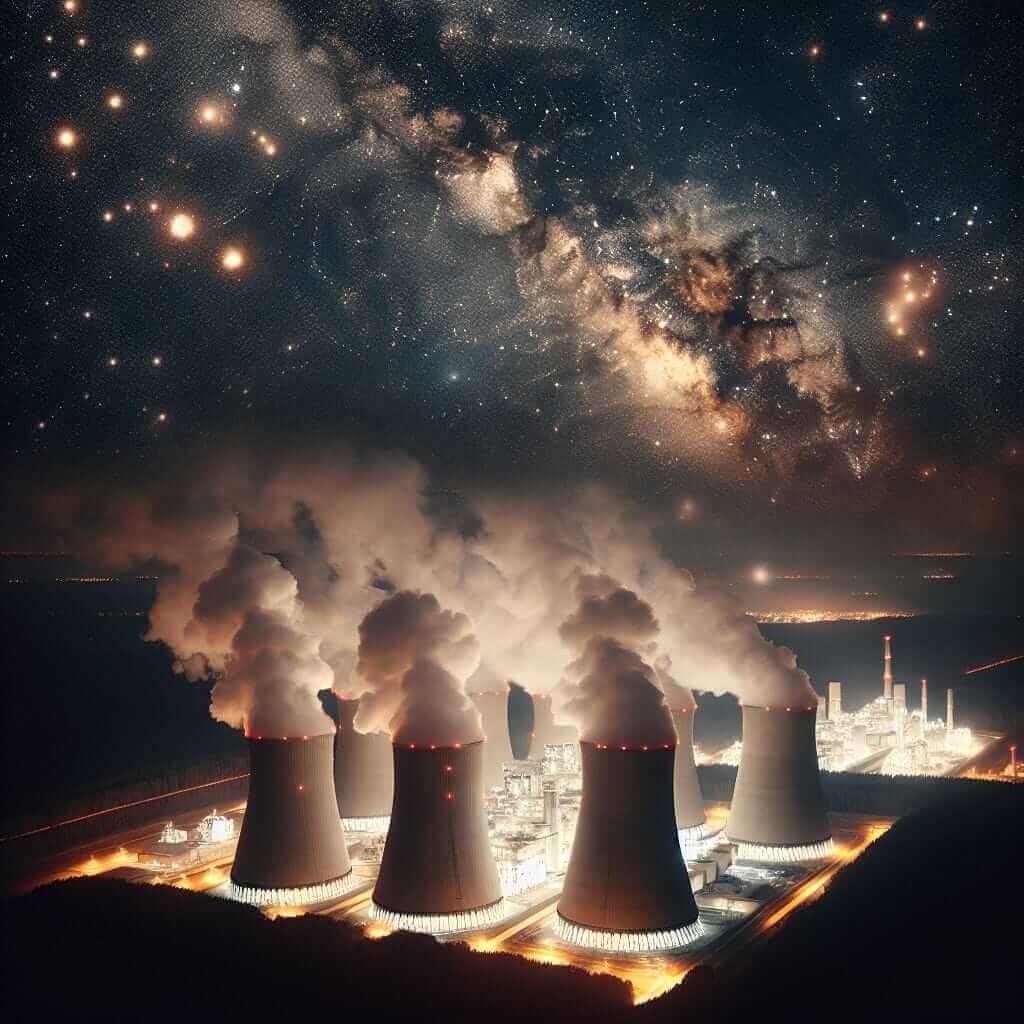The use of nuclear energy is a controversial issue, and its effects on the environment are often debated. As a hot topic in global discussions, it’s no surprise that it frequently appears in IELTS Writing Task 2, especially under the theme of environmental issues. Understanding the nuances of this topic is crucial for achieving a high band score.
This comprehensive guide aims to equip you with the knowledge and skills needed to confidently tackle any IELTS Writing Task 2 question related to the environmental impacts of nuclear energy. We will analyze common question types, provide a high-scoring sample essay, dissect its key features, and furnish you with essential vocabulary to elevate your writing.
Sample IELTS Writing Task 2 Questions
Here are some potential IELTS Writing Task 2 questions related to this topic:
- Some people believe that nuclear energy is the key to solving the global energy crisis, while others argue that it poses too many risks to the environment. Discuss both these views and give your opinion.
- The environmental hazards associated with nuclear power are well documented. In your opinion, do the benefits of nuclear energy outweigh these risks?
- To what extent do you agree or disagree with the statement that nuclear energy is a clean and sustainable source of energy?
Sample Essay: Analyzing the Risks and Benefits of Nuclear Energy
Let’s craft a sample essay responding to the first question prompt:
Question: Some people believe that nuclear energy is the key to solving the global energy crisis, while others argue that it poses too many risks to the environment. Discuss both these views and give your opinion.
Essay:
The quest for sustainable energy sources has intensified as the world grapples with the looming threat of climate change. While renewable options like solar and wind power gain traction, nuclear energy remains a topic of fierce debate. Proponents view it as a potent solution to the global energy crisis, while opponents emphasize its potential environmental hazards. This essay will delve into both perspectives before presenting a balanced conclusion.
Advocates for nuclear power highlight its remarkable efficiency. Unlike fossil fuels, nuclear fission generates a tremendous amount of energy from a relatively small amount of fuel. This not only reduces our reliance on finite resources but also minimizes greenhouse gas emissions, a major contributor to global warming. Furthermore, advancements in nuclear technology promise even safer and more efficient reactors, assuaging concerns about accidents and radioactive waste disposal.
Conversely, the risks associated with nuclear power cannot be ignored. The specter of catastrophic accidents, such as Chernobyl and Fukushima, casts a long shadow over the industry. The release of radioactive material can contaminate vast areas, rendering them uninhabitable for generations and causing severe health problems for humans and wildlife. The long-term storage of radioactive waste also poses a significant challenge, requiring meticulous management to prevent environmental contamination.
In conclusion, while nuclear energy presents a compelling solution to the global energy crisis, its potential environmental consequences are undeniable. A balanced approach is required, one that carefully weighs the benefits against the risks. Investing in robust safety measures, exploring advanced reactor designs, and finding viable solutions for waste disposal are crucial steps in harnessing the potential of nuclear energy while safeguarding our planet for future generations.
(Word count: 282 words)

Analysis and Key Takeaways
This essay effectively addresses all aspects of the prompt by:
- Presenting a balanced discussion: The essay explores both the advantages and disadvantages of nuclear energy, providing evidence and examples to support each viewpoint.
- Maintaining a clear structure: The essay follows a logical structure, with an introduction, body paragraphs presenting contrasting views, and a balanced conclusion.
- Utilizing appropriate vocabulary: The essay incorporates relevant vocabulary related to energy, environment, and technology, demonstrating a good command of language.
Useful Vocabulary
- Sustainable (adjective): /səˈsteɪ.nə.bəl/ – Able to be maintained at a certain rate or level.
- Fission (noun): /ˈfɪʃ.ən/ – The process of splitting an atom’s nucleus, releasing energy.
- Greenhouse gas emissions (noun phrase): /ˈɡriːn.haʊs ˌɡæs iˈmɪʃ.ənz/ – Gases released into the atmosphere that contribute to the greenhouse effect.
- Radioactive (adjective): /ˌreɪ.di.oʊˈæk.tɪv/ – Emitting radiation.
- Contamination (noun): /kənˌtæm.ɪˈneɪ.ʃən/ – The presence of unwanted or harmful substances.
- Disposal (noun): /dɪˈspoʊ.zəl/ – The act of getting rid of something.
- Meticulous (adjective): /məˈtɪk.jə.ləs/ – Showing great attention to detail; very careful and precise.
- Viable (adjective): /ˈvaɪ.ə.bəl/ – Capable of working successfully; feasible.
Conclusion
Remember that practice is key to excelling in the IELTS Writing test. Familiarize yourself with the format, practice brainstorming ideas, and work on incorporating advanced vocabulary and grammatical structures. By following these tips and learning from the sample essay provided, you’ll be well on your way to achieving your desired band score.